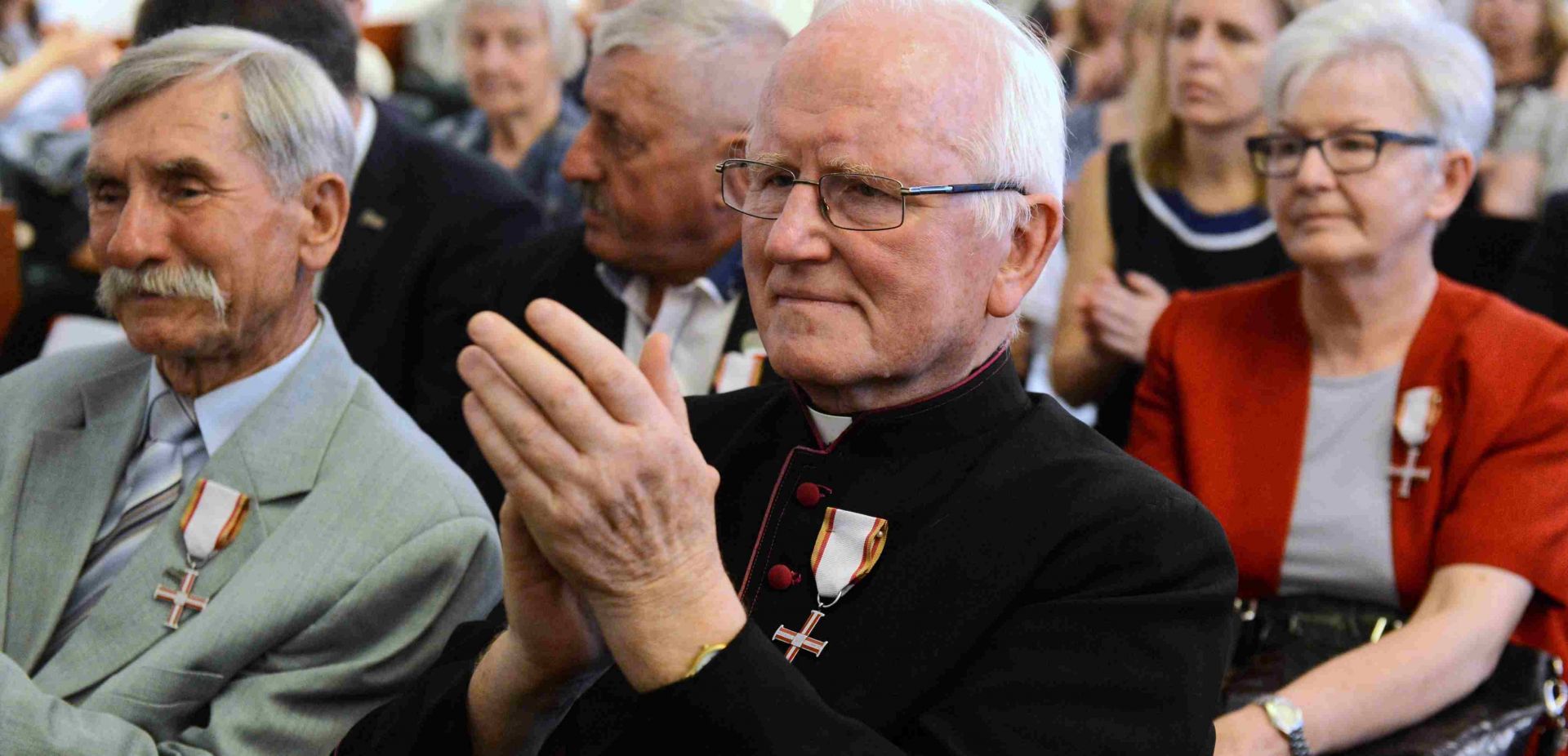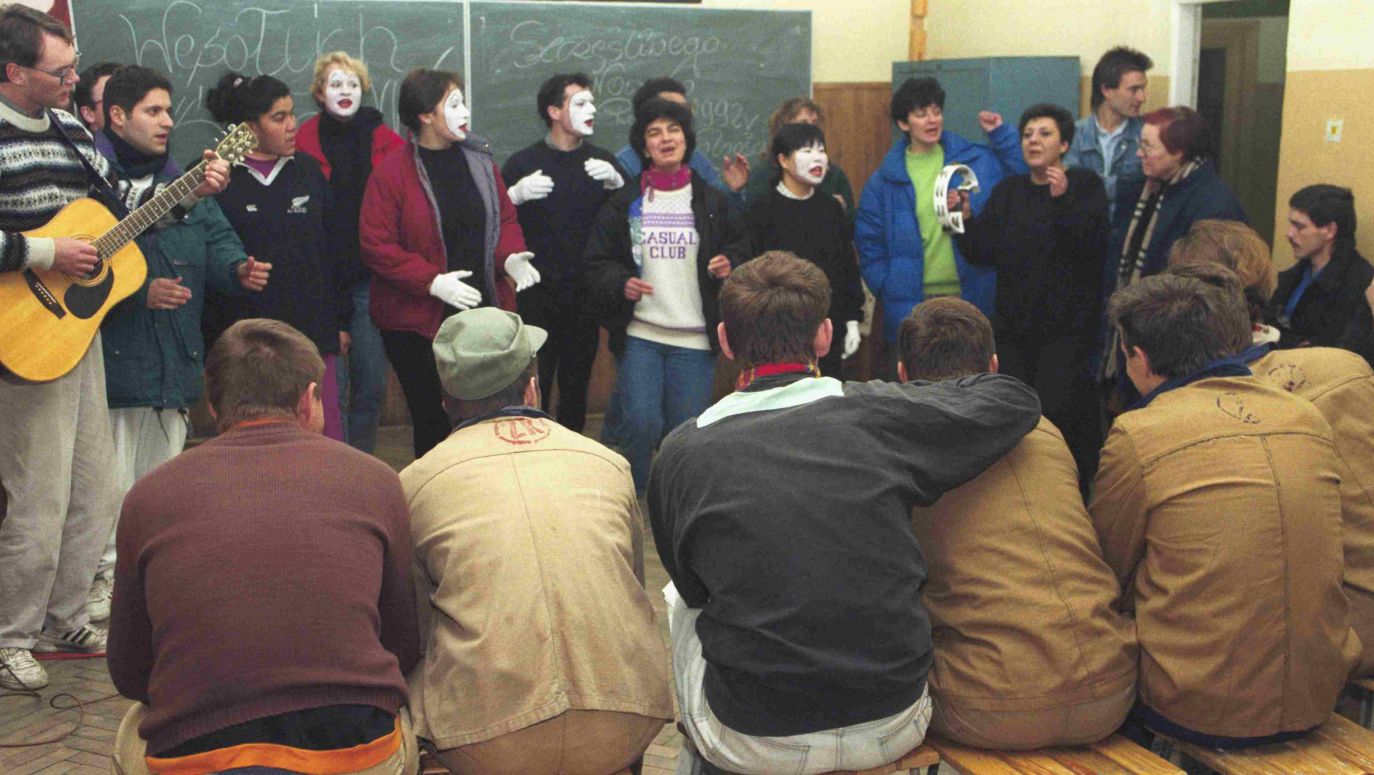TVP WEEKLY: Your being a “Solidarity” chaplain under the martial law, a chaplain of the internees at Białołęka, has it influenced you commitment to serving all prisoners after 1989?
Rev. JAN SIKORSKI: How did it all begin? A congress of Catholic prison chaplains from all over the world was held in 1989, in Vienna. It was then that someone from Poland was to go there for the first time. And Bishop Władysław Miziołek suggested that I go there as a representative of the Polish prison chaplaincy, which was almost non-existent, because priests were rather not allowed in prisons. I say – all right, I'll go. And there, for the first time, I saw that this prison pastoral care works in the world with good results and that it is a great work. There, for the first time, I came across the American organization PFI (Prison Fellowship International), which was of great importance for the activities of this pastoral ministry in the world. There were also media from all over the world, and as a curiosity from behind the Iron Curtain, I received many different questions, for example, whether torture was allowed in Poland.
Throughout the congress there had also resounded the role of lay people who evangelized in jail. Coming back to Poland I knew it was worth forming such a group of lay people. Already on the train from Vienna I was arranging in my mind how it might look like in Poland. Later on, I met the French Prison Fellowship. At that meeting an ex-inmate made an impression on me as he had become director of a rehabilitation center and I listened to him with envy. So it became my dream that something alike could happen in Poland.
 SIGN UP TO OUR PAGE
SIGN UP TO OUR PAGE

Then I thought to myself that such an international prison congress could be organized in Poland. It wasn’t easy though. Where to start here? Everything was missing, e.g. interpreting booths, apparatus, and the translators themselves – all at terrible prices. And I didn’t have a penny for it. Fortunately, the seminary’s rector suggested that we could accommodate our guests in the seminary, especially since it was holidays. It was already something. I invited local bishops and ministerial authorities to this convention. The late Bishop Orszulik donated a few zlotys for this. I was also hoping that the invited guests from the west would throw in some dollars. My parishioners also began to help me organize the reunion. And everything started working out. There were speakers from home and abroad. I invited Paweł Moczydłowski, PhD, from the University of Warsaw to be the main speaker.
Why did you insist on that so much?
I saw with my pastoral eye that such a chaplaincy should be set up in Poland.
But you had some legal “authorization” for this activity and for this congress?
I had nothing! I realized it was a historic moment which had to be benefited from and “take the bull by the horns”, and to involve lay people’s work in particular. I was positive about that. I also felt there was a chance to involve East European countries in that work. I even wrote an invitation to the same bishops so that they send their delegates. I received a pessimistic answer, must have been from the Hungarians: “we don’t have such pastoral care and we don’t plan it”.
And I unleashed this absolute madness, but I liked that kind of thing. People from all around the world came, bishops came, even Card. Jozef Glemp did. All important speeches were recorded. Everything went very well, but there was no hot water in the seminary at that time.
This congress of ours was a breakthrough, the Council of Europe also learnt about it – everything gained momentum. Politically, things were changing in Poland as well, different times were coming. A turning point. A few weeks later, “Gazeta Wyborcza” writes: “Our screw”. Who? Paweł Moczydłowski. The communists let it go and appointed a new director general of prisons. And he gave a very good speech at our congress! I meet him and he asks me: And what, Father, are we doing prison chaplaincy? We are. He gave me a room next to him in the Ministry of Justice – because that’s where his office was. And suddenly I became an official specialist in prison matters. I started going with him to different penitentiaries. The uniformed guards wondered if was appropriate to stand next to someone in a cassock – because it had been very frowned upon so far. They even asked if it was a linden tree or if it really would be now. I said will be, will be. Prisons need chapels, chaplains and lay evangelizers.

 SIGN UP TO OUR PAGE
SIGN UP TO OUR PAGE
 Then I thought to myself that such an international prison congress could be organized in Poland. It wasn’t easy though. Where to start here? Everything was missing, e.g. interpreting booths, apparatus, and the translators themselves – all at terrible prices. And I didn’t have a penny for it. Fortunately, the seminary’s rector suggested that we could accommodate our guests in the seminary, especially since it was holidays. It was already something. I invited local bishops and ministerial authorities to this convention. The late Bishop Orszulik donated a few zlotys for this. I was also hoping that the invited guests from the west would throw in some dollars. My parishioners also began to help me organize the reunion. And everything started working out. There were speakers from home and abroad. I invited Paweł Moczydłowski, PhD, from the University of Warsaw to be the main speaker.
Then I thought to myself that such an international prison congress could be organized in Poland. It wasn’t easy though. Where to start here? Everything was missing, e.g. interpreting booths, apparatus, and the translators themselves – all at terrible prices. And I didn’t have a penny for it. Fortunately, the seminary’s rector suggested that we could accommodate our guests in the seminary, especially since it was holidays. It was already something. I invited local bishops and ministerial authorities to this convention. The late Bishop Orszulik donated a few zlotys for this. I was also hoping that the invited guests from the west would throw in some dollars. My parishioners also began to help me organize the reunion. And everything started working out. There were speakers from home and abroad. I invited Paweł Moczydłowski, PhD, from the University of Warsaw to be the main speaker.





